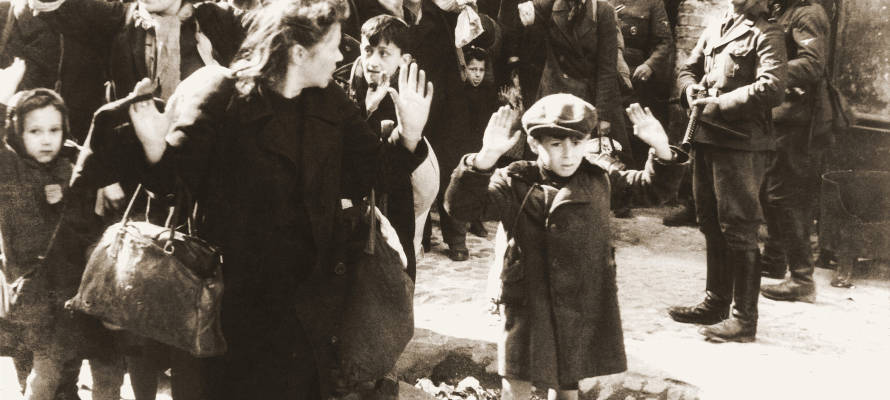THIS ARTICLE WAS ORIGINALLY PUBLISHED ON APRIL 14, 2015
With fresh memories of the horrific past and with numerous looming threats, many Israelis believe that another Holocaust could happen.
By Max Gelber, United with Israel
Almost half of all Israelis – 46 percent believe that a Holocaust akin to the one that occurred in Europe during the Nazi regime could happen again, a survey conducted by the Foundation for the Benefit of Holocaust Victims in Israel shows.
The annual poll was published ahead of Holocaust Remembrance Day in Israel, which will be marked on Thursday. It shows a five-percent increase in comparison with the 2014 surveys, according to which 41 percent Israelis feared another Holocaust.
Among Israel’s 189,000 Holocaust survivors and their offspring, known as second- and third-generation survivors, 47 percent believe that another Holocaust could happen.
A similar survey conducted by the Tel-Hai Academic College in northern Israel in 2012 showed that approximately 40 percent of all Israelis believe it could happen again, and 43 percent expressed concern that the survival of the State of Israel was in danger.
Impact of Holocaust on Israeli Psyche
These findings reflect the deep impact of the Holocaust on the Israeli psyche, including those born in Israel after World War II, Professor Shaul Kimhi, chair of Tel-Hai’s psychology department and one of the faculty members involved in the study, explained.
“It turns out that more than a third of Israelis believe that the Holocaust was not a one-time occurrence and could happen again. This substantial proportion [of the population] is an indication of Holocaust fears instilled in us from childhood, which are not necessarily rational, but they’re part of Jewish-Israeli culture,” he said.
Will the Next Generation Remember?
As time passes, Holocaust survivors fear that their legacy will be forgotten. Almost half of Holocaust survivors, 46 percent, have expressed apprehension that future generations will not remember the Holocaust after they are gone. This consists of a nine percent climb from last year’s study.
The general Israeli public is less fearful, as only 31 percent harbor the same concerns. However, half of Israelis under the age of 30 have said they have never met a Holocaust survivor, the poll shows.
An Iranian Holocaust?
Eliyahu Yokel was born in Czechoslovakia in 1942. He was an inmate at the Theresienstadt Concentration Camp, and his father was murdered by the Nazis. Yokel told United with Israel that he feared another holocaust could be perpetrated against the Jews by Iran.
“A nuclear bomb poses a real threat to Israel,” he said, although he does not see it as an immediate threat, as many scenarios could occur before the Iranians would attempt to annihilate Israel.
Regarding the memory of the Holocaust, Yokel believes that the calamitous events will not be remembered by future generations as they actually happened. “It is very difficult to properly comprehend what actually happened there,” he said.
